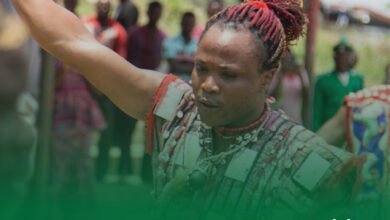
Tayo Oviosu, the founder of Paga and one of Nigeria’s most successful tech entrepreneurs, was recently made to confront the complex workings of what it means to be a citizen of Nigeria.
Seeking to renew his passport, he was asked to prove his indigeneity by obtaining a certificate showing his membership of his ancestral community in his ‘state of origin’, which is distinct from his state of birth and residence. The problem for Tayo, and other Nigerians alike, is that he has little connection with this ‘state of origin’ and has only been there twice in his lifetime.
Displeased with this reality, he has called for the replacement of the ‘state of origin’ requirement with ‘state of residence’. By implication, he is advocating for a radical shift in the understanding of what it means to be a Nigerian citizen, from an individual’s traceable ancestral roots, which are permanent, to his residential address, which changes from time to time.
His argument echoes the ideological position of those who claim that defining citizenship through ethnicity which is proven through membership of an indigenous community contributes to division and discrimination. They aver that it prevents the country from transforming from a colonial project to a nation of siblings where everyone enjoys the same rights, wherever they find themselves.
However, this viewpoint is strongly contested by those who believe it ignores Nigeria’s combustible past and the bitter conflicts over access to and management of resources. Semi-autonomous states were created to end these conflicts and assuage the fear of domination and the consequent loss of land and other hard-won resources. This fear doomed the country’s first attempt at self-government following independence in 1960 as each region acted to prevent what it perceived as undue incursions and interference in its territory.
The 1999 constitution states that a person becomes a citizen by birth if they are born in Nigeria before the date of independence or if either of their parents or grandparents belongs or belonged to a community indigenous to Nigeria. Although it goes on to guarantee equal rights and privileges to every Nigerian so identified, wherever they live, the emphasis on indigeneity has become a point of differentiation, forcing every individual to embark on a search for their roots to assert their citizenship.
The ‘indigene’ status confers special perks and privileges in what is considered their homeland, which a majority of Nigerians are unwilling to abandon even if they protest the ‘discrimination’ in places where they are regarded as ‘non-indigenes’.
In some states, ‘indigenes’ enjoy discounted access to education that isn’t available to ‘non-indigenes’. Nearly all the states have a variety of such status-defined opportunities. This makes the status a sought-after label, sparking debates over the ancestral journey of some groups and the validity of their claim to certain lands. These conflicts are intractable, given that claims and counterclaims are supported only by oral evidence, and oftentimes turn bloody.
In short, the dichotomy of indigene and non-indigene looms large and sharply defines the experience of the average Nigerian. While some regard it as a necessary mechanism to regulate access to and protect their cultural assets, which precede the existence of Nigeria; others consider it a needless obstacle in the way of evolving a united country with equal classes of citizens.
Tayo Oviosu has demanded a public debate to explore the subject and continues to argue in favor of his position. It remains to be seen if he will succeed in persuading enough minds to provoke a change in this social phenomenon that is central to what it means to be Nigerian.





